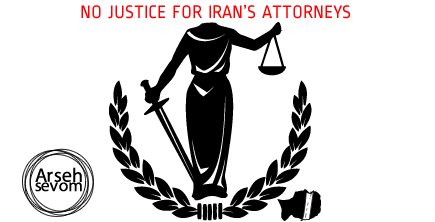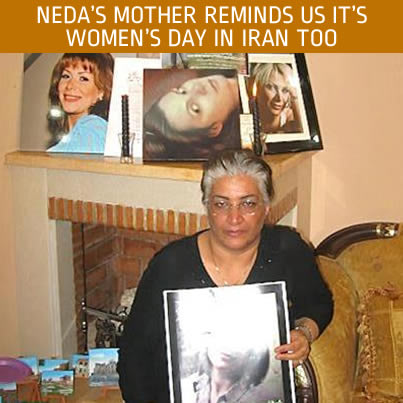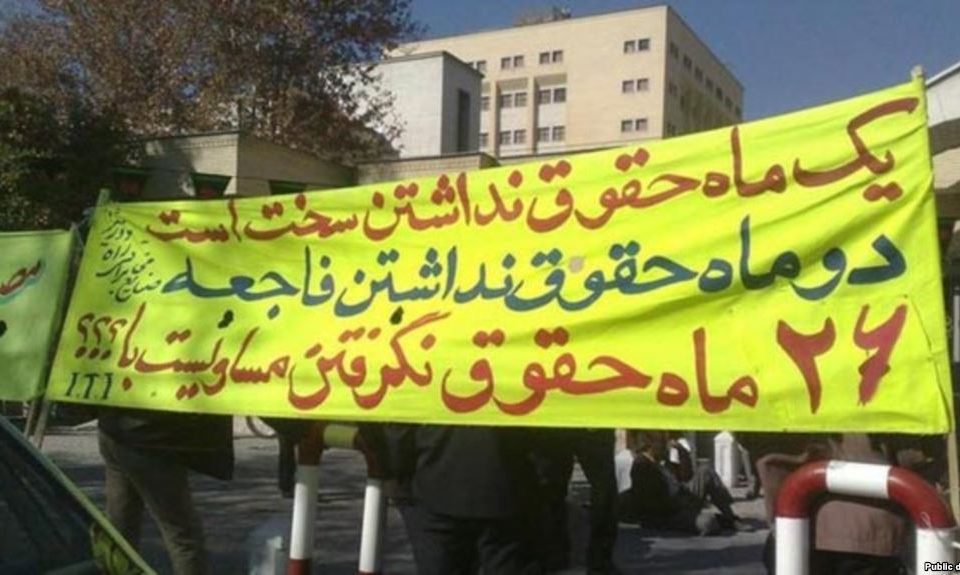
In defense of “independent legal practice” in Iran
February 26, 2013
Iran: Under Pressure Society Struggles
March 8, 2013Whether it is preventing filmmakers from making films or protesting the decisions of international festivals and awards committees, film has been in the news lately when it comes to the Islamic Republic of Iran.
The Envelope Please…

Still from the film Closed Curtain. Director Jafar Panahi looks at a film of the sea.
“In the end, life is but memories. Bitter memories. Sweet Memories. There’s more to life than work…” a character tells Jafar Panahi in the film Closed Curtain. Panahi is under house arrest and forbidden from making films.
In the weeks leading up to the Oscars, Jafar Panahi and Kamboziya Partovi shared a screenplay award for the film Closed Curtain. Critic Eric Kohn calls the film “Less a finished movie than a cry for help…”
Iran lodged a complaint against the selection.
“We believe that the Berlin fest organizers should correct their behavior. Everyone knows that making a film and sending it outside the country needs permission,” stated Javad Shamaqdari, the Deputy Minister for Film and director of the government sponsored, newly launched Iran Cinema Organization.
The star of Closed Curtain Maryam Moghadam and co-director Kamboziya Partovi were in Berlin to accept the award. When they returned to Iran their passports were confiscated and they were banned from foreign travel.
More from Radio Zamaneh [fa] http://radiozamaneh.com/news/iran/2013/02/28/24885 and
The Hoolywood Reporter [en]:http://www.hollywoodreporter.com/news/iran-bans-closed-curtain-team-424843
Argo Creates Unity
A distaste for the film Argo unites many inside and outside Iran. Many see the film as demonizing Iranians and as setting the stage for a military strike on the country. Others find it historically misleading and degrading. In The Guardian, Saeed Kamali Deghan unpacks the experience of watching the film:
The whole experience is like asking an Iranian who has never been to the US to make a film (let’s say in Cuba) about the Columbine high school massacre. You’ll probably end up watching a film in which all Americans are crazy, have a gun at home and are ready to shoot their classmates…
Iran responded to the Oscars by hosting a conference called “Hollywoodism,” which gave a platform to anti-Hollywood oices at its annual Fajr film festival. The New York Times provides an overview
There is no way of avoiding the Oscars, even in Iran’s closed environment. EAWorld View was quick to note how Michele Obama’s Oscar dress was altered by the tailors at Fars News giving her strapless gown sleeves and lifting the neckline.
In related news, Radio Zamaneh [fa] reports that Javad Shamaqdari claims that last year’s Oscar committee was told to vote for the film A Separation in order to put “a thorn in the eye of the Israelis.” Shamaqdari claims, “I was given the responsibility of selecting the film to go forward to the Oscars. I asked Ahmadinejad for his best advice. He said to me, ‘Go and make Iranian cinema the top internationally.’”
House of Cinema Still Closed
Near the end of February, Iran replaced the independent House of Cinema — which ironically began its life under the protective wing of of the Islamic government — with its own Iranian Cinema Organization. The new organization is led by the controversial Javad Shamaqdari who was the Deputy Culture Minister for Cinematic Affairs and a leader of the charge against the House of Cinema. There are many in the film community who resent the new leadership.
In March 2013, a group of filmmakers, writers, and critics associated with the closed House of Cinema wrote an open letter to Mahmoud Ahmadinejad complaining about the lack of action on the case and singling out the new director of Iran’s Cinema Organization Shamaqdari for criticism.
The group is suffering the double whammy of an economic crisis and the lack of independent representation. In their letter, the group complains that the House of Cinema remains closed. They criticize Shamaqdari for taking the view that the House of Cinema is illegal despite the fact that it had always followed the law and operated in a transparent manner.
The letter was discussed on state television in Iran.





